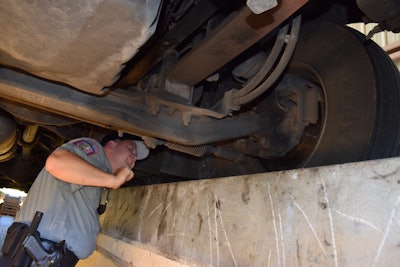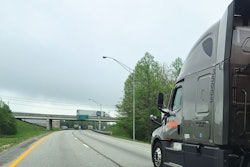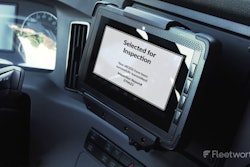 A federal appellate court ruled that FMCSA’s Pre-employment Screening Program, which allows carriers to access the past five years of a potential employee’s crash data, the last three years of inspections and “serious safety violations for an individual driver,” does not violate drivers’ privacy.
A federal appellate court ruled that FMCSA’s Pre-employment Screening Program, which allows carriers to access the past five years of a potential employee’s crash data, the last three years of inspections and “serious safety violations for an individual driver,” does not violate drivers’ privacy.A federal appellate court has concluded the Federal Motor Carrier Safety Administration’s Pre-employment Screening Program does not violate drivers’ privacy by providing non-serious safety violations to potential employers.
The 1st U.S. Circuit Court of Appeals affirmed a lower court’s dismissal of the case on Oct. 21. “Indeed, the disclosure of other non-serious driver-related safety violations, such as speeding tickets or other fines, would presumably help achieve Congress’s objective in empowering the FMCSA to promote highway safety,” Judge Norman Stahl wrote.
In 2005, Congress mandated that the agency grant trucking companies access to certain minimum information from its Motor Carrier Management Information System so employers had a reliable method of verifying drivers’ safety record quickly before hiring them.
A carrier can opt to use PSP to screen a potential hire by submitting a consent form signed by the driver and paying a $10 fee. This release form informs potential employees they agree to allow the company access to the past five years of their crash data, the last three years of inspections and “serious safety violations for an individual driver.”
Federal regulations define “serious” violations as ones the DOT determines prevent a driver from operating a commercial vehicle until corrected. The law does not indicate if the agency must provide non-serious driver safety violations to potential employers.

In 2014, six truckers filed a class action suit, but the federal district court rejected arguments that FMCSA’s inclusion of less serious violations in PSP reports violates applicants’ privacy and that the agency lacks authority to release it.
The appeals court agreed with the lower court’s conclusion that Congress had not barred releasing other driver information in PSP reports with the potential employee’s consent. Mandating that the agency “shall provide” these reports “can just as easily be read as a floor, an articulation of the agency’s minimum disclosure obligations, rather than a ceiling,” Stahl wrote.
The court also dismissed assertions that they “have no choice but to sign off on the release of their records in order to seek future employment” and signing this form “would certainly doom any prospect for employment.”
Companies are not required to access the PSP to screen potential employees, the court noted. However, even if carriers do, appellants had not shown their “chances for employment are doomed entirely as a result of employers having access to their driving records which include non-serious violations,” it stated.
The Owner-Operator Independent Drivers Association is not a plaintiff in the suit, but in 2014 expressed its support for it and said the six drivers were OOIDA members.











